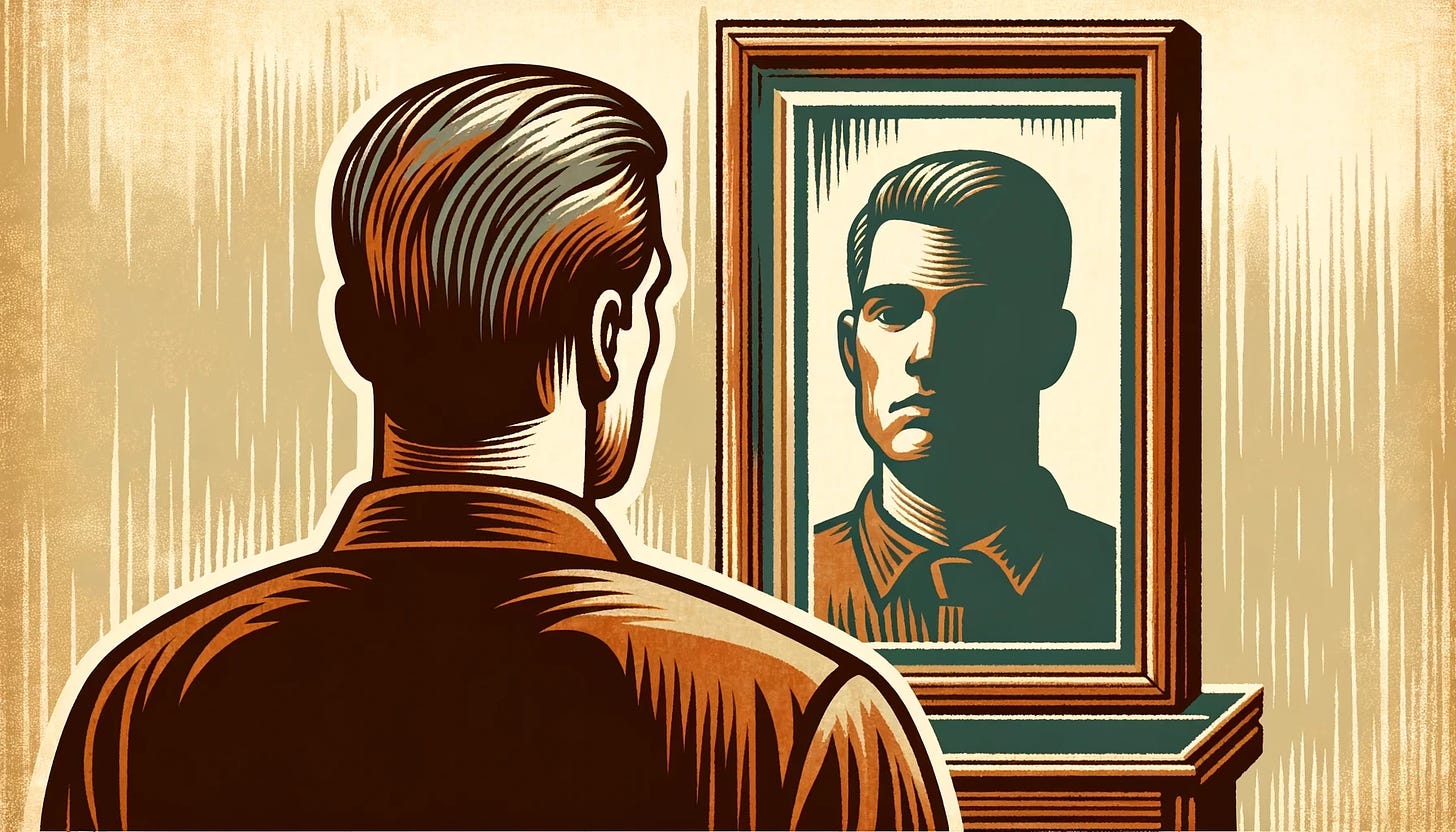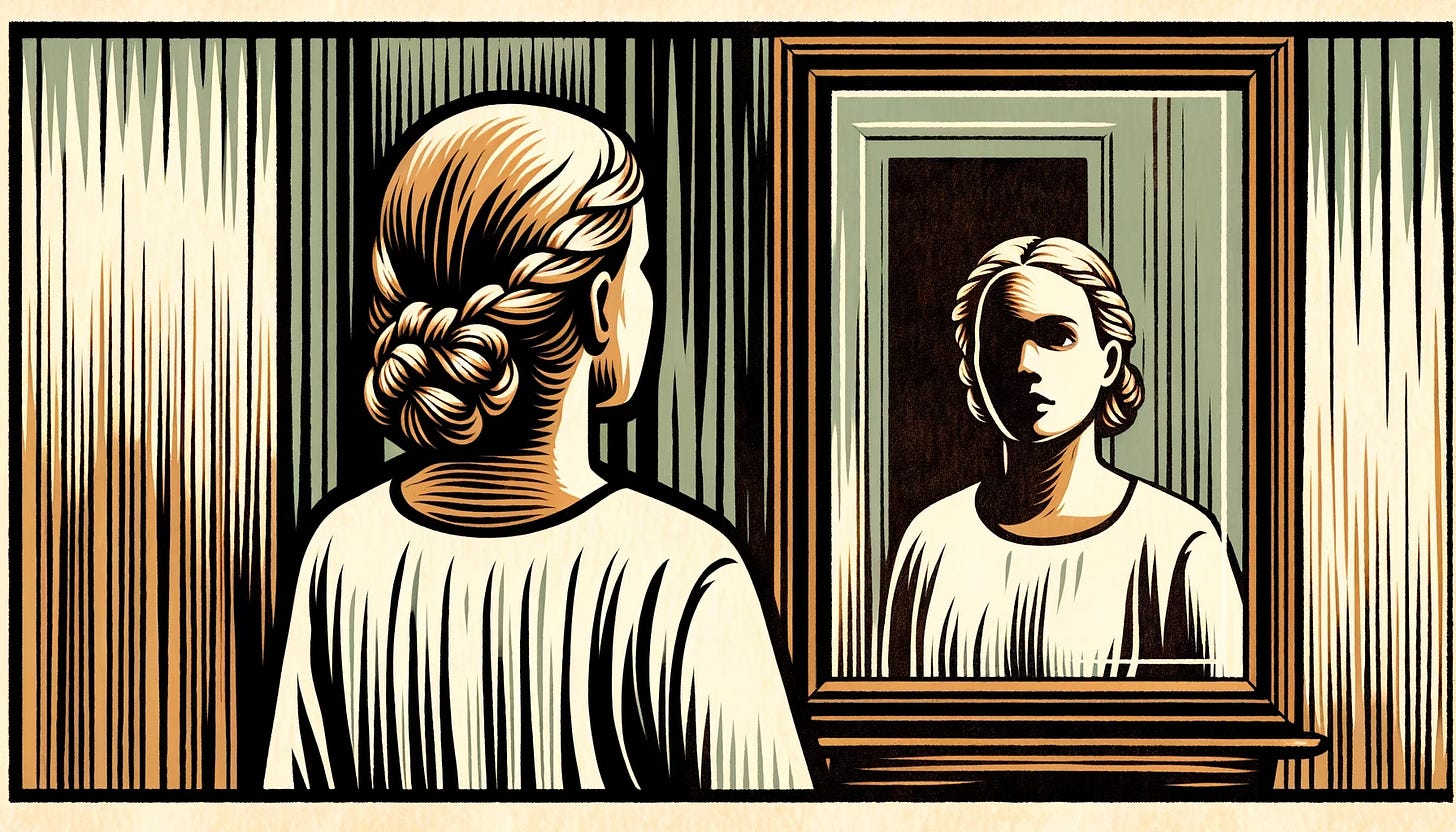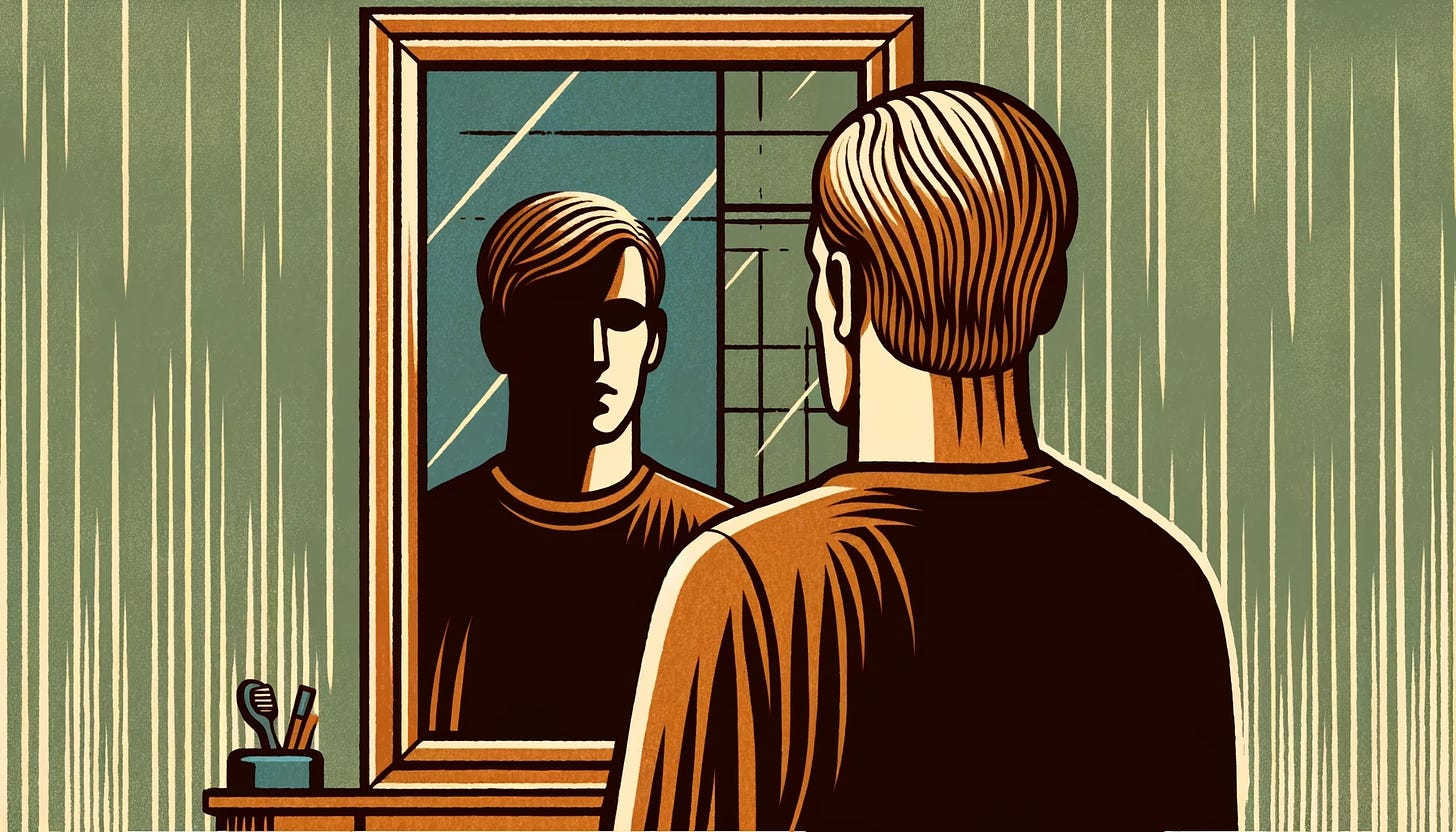Me/moirs
If you have been reading this newsletter you will be aware I’m not a fan of memoirs. My lack of interest in the genre stems partly from my discomfort with authorial self-commodification, and the dynamics it creates, including the need for writers to scramble for contrived identitarian USPs, in a bid to become publishable. But the genre also frustrates me as a literary critic, since it’s very challenging to offer objective criticism of memoirs. Write negatively about them, especially so-called misery memoirs, and risk accusations of insensitivity, or worse. It's as if memoirs deserved a different treatment simply because they are personal texts1 — no other text can claim this bulletproof status. And there is more, although I couldn’t put my finger on what “more” meant until very recently. As always, the epiphany came about by chance.
Recently I’ve started listening to audiobooks, and although I’m certain they can’t replace pages in my life, and I wouldn’t listen to fiction books, I find the medium to be pretty good for filling empty moments (walks, gym, cooking, etc). In the past few weeks I’ve listened to Naomi Klein’s Doppelgänger (2023), which I highly recommend to anyone wishing to explore the intersections of online culture, wellness, and fascism. I guess some might classify Klein’s book as a memoir. I mean, I don’t need to guess anything, since the label is used by her publisher in the press release. But to me the audiobook has little of a memoir — a label that is indiscriminately applied these days, for obvious marketing purposes. In my opinion, this book is a collection of interconnected essays that — while leaning on Klein’s life — give an account of many contemporary political and cultural processes. So no, not a memoir, if you ask me, but a book that isn’t afraid to be personal.
The second audiobook I’ve been listening to is Werner Herzog’s Every Man for Himself and God against All: A Memoir (2023). Call me a hypocrite if you may, since here I am, someone who’s supposedly put off by memoirs, consuming one that even exhibits the label in its title! In my defence, Herzog is one of my favourite filmmakers and I couldn’t resist the temptation of having him narrate a book for me, in that fantastic made-up accent.
Hypocrite or not, I don’t regret indulging in this audiobook, since it is partly thanks to Herzog that I’ve realised what my other problem with memoirs is2.
Centripetal writing
The problem is what could be called centripetal writing. I’m not a physicist, so apologise the very lay explanation that follows. A centrifugal force is a force that emanates outwards from a centre; whereas a centripetal force is a force that is directed towards the centre. My impression is that many memoirs trace exactly the latter movement, making use of external universals in order to think through interior particulars. This is a demand, of course, born off the need to find one’s own identitarian singularity in order to partake in the genre — that forced USP I’ve described above.
I’ve come to this conclusion by becoming aware of the opposite possibility: looking towards interiority in order to think through universals. This is what I feel Herzog is doing in his memoir. An old family anecdote about villagers hunting for wolves, finding wolf puppies, giving the puppies to infants, who then proceed to play with them until the puppies die, is Herzog’s way to transform individual memories into universal experiences. The same can be said about his recollection of stabbing his brother during a fit of rage when they were teenagers, or about his reminiscence of being hungry as a child, and so on. These are experiences that far from being merely anecdotal or self-referential speak of the human condition, and beyond, since Herzog many times transcends human singularity. It should surprise no one, since this has been Herzog’s raison d’être as an artist for as long as he has made films. Whether he’s narrating a story of ski jumpers, volcanos, tragic bear-huggers, a maniac conquering the Amazon river, a plane pilot, Kaspar Hauser, or fata morgana, Herzog has a talent for speaking in a way that speaks to us all.
The alternative would have been for Herzog to reach out into the world, in order to think through himself as individual3, which would have made him incredibly dull, considering the niche themes of many of his films. Just imagine what a kind of film would Die große Ekstase des Bildschnitzers Steiner (1974) have been, if Herzog had used Steiner’s acrobatics just to discuss his own experiences with ski-jumping as a young man.
This kind of introspection is something that literary critic Joseph Schreiber describes very well in an essay on Michel Leiris and his Olympia4:
Writing is an essential activity—if he is not writing he experiences a feeling akin to withdrawal—and even after a long career, the fear of failure still rides him. But he is not writing himself into the outside world, the existential equation one might expect. Rather, as he puts it, he is “concentrating the external world inside myself.”
And this is precisely where the problem is located. It’s a problem of excess of self-reflexivity but it’s also a problem of position. If a writer retreats into the self, where am I, the reader, supposed to position myself? Should I penetrate this individual space? With what consent? What would I gain from this journey into the depths of another self, but an awareness of the differences that keep us apart?
From the political is personal to the personal is political
Before someone comes screaming at me that I’m erasing them, let me be clear: I’m not proposing here that we eradicate the self, let alone difference and singularity; I’m not saying that we need to cancel identity; I’m not even arguing that we need to stop writing memoirs. What I am advancing here is the need for the self, difference, singularity and identity to be articulated in a centrifugal way. A movement from the essentialist fortress of the self, to the outside where we can meet. From “the political is personal” we need to return to “the personal is political”, that is, while we figure out how the hell we transcend the identitarian fragmentation in which we find ourselves today. In other words, we need to figure out how to link the burrows where we have dug ourselves in, without erasing our singularities. The desperate times we find ourselves in demand that we come together5.
The alternative would be to continue to find other ways to remain inside and looking in, while we tell ourselves that this claustrophobic retreat into individualism is a form of liberation.
Exploring the extent to which the misery memoir serves as an alternative to therapy, especially in these times in which the state has all but given up on caring for our mental health, warrants further discussion. This could shed light on the demand for special treatment and leniency — one shouldn’t be too critical with someone’s private journals, after all. However this raises a pertinent question: why opt for publication if these texts are so personal?
And a shoutout to those who attended the last Reading Clinic event (late January 2024). Our discussion of Herzog’s memoir in the context of other texts helped me round up the ideas I’m exploring in this piece. I should be paying you to attend the events, since you are all a lot cleverer than I.
Perhaps exploring notions of trauma.
Not necessarily in negative terms.
Obviously the problems we’re facing exceed literary questions. But if we’ll continue to produce literature, then we need to consider the need for a common language.







I often find that the fashionable identity politics have little to do with the self and more to do with belonging to a group. A tribal identity. Much of what I see in this kind of politics is racist, homophobic, etc. to my eyes, due to its insistence on stereotype as 'experience of type' and also very divisive. Seeks to make enemies rather than unite. Because of its trend and therefore commodity, it is pushed as very publishable. Companies pretend they care about these issues, but really, they want to cash in on them. These ideologies are a middle-class imposition. For example, much of modern feminism ain't so concerned with women as with certain types of women. If a woman don't fit narrative, no matter how needy of concern, she ain't a concern. A middle-class successful 'strong' business woman is a better story that a woman subjugated and downtrodden. Every black, queer, female, etc. I know, hate identity politics and find the constant need for status as victim an embarrassment. They find it condescending, humiliating and ridiculous. They are working-class people who overcome adversity every day. Strong people who may be real victims, but never identify as such. They walk with their heads high and shoulders back. They are the heroes and heroines of their world. Not victims.